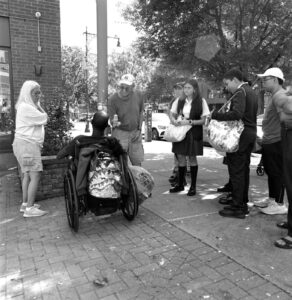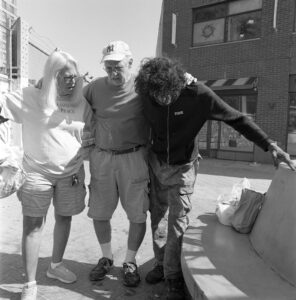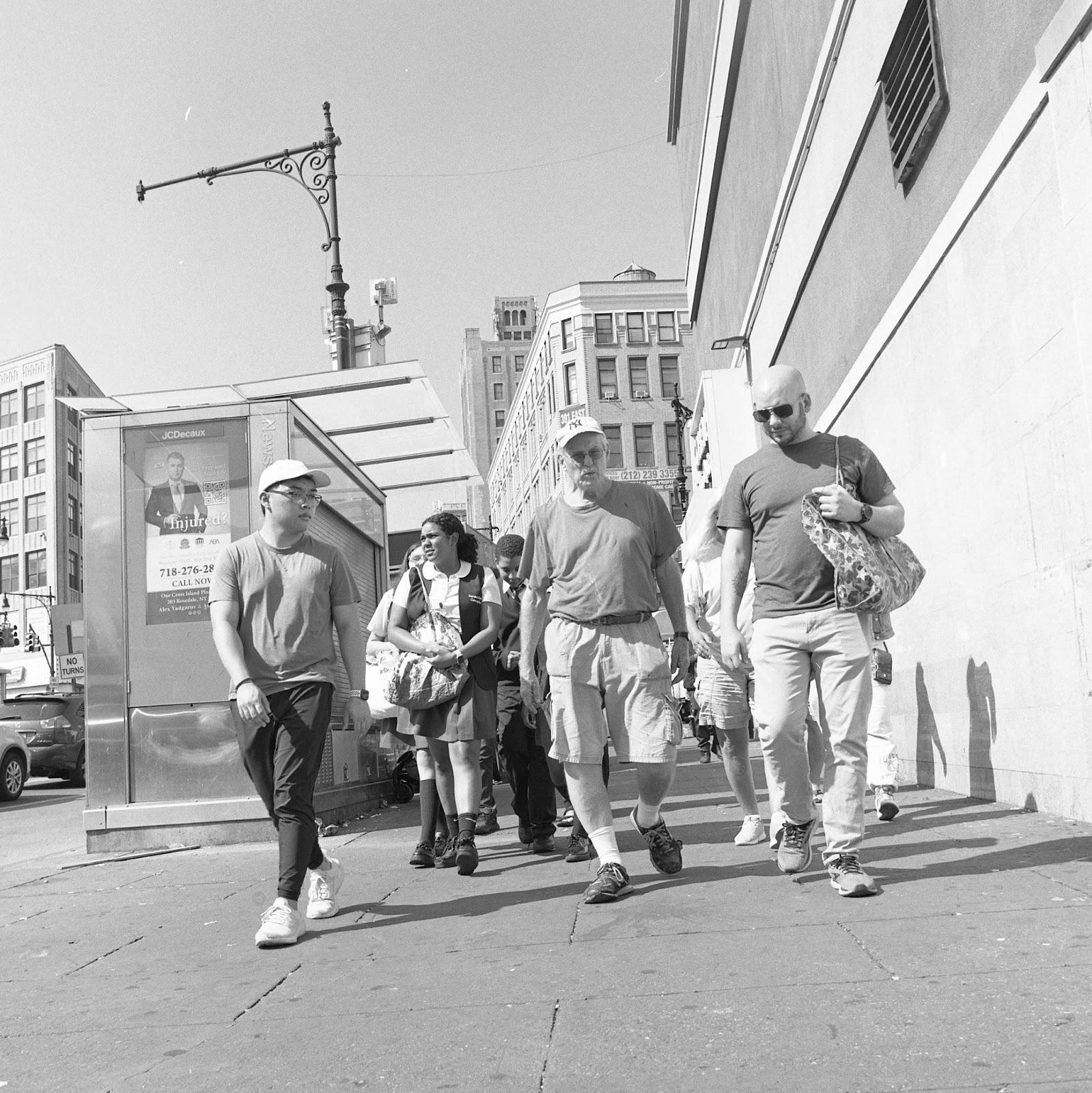Every Wednesday, from 12:30 to 2:00 p.m., the routine is the same for Martin (Marty) Rogers and his companion, Mary Anne Christopher. They load up a variety of food supplies and hit the streets of The Hub.
This isn’t your average food drive. They’re reaching out to a segment of the Bronx that many prefer to ignore – those battling the hardships of addiction and homelessness.
In neighborhoods like Hunts Point, Mott Haven, Crotona and Tremont, the harsh reality of these issues is more than just statistics. Rogers’ hands-on approach is a response to the alarming overdose death rates, a signal of societal safety nets failing.
“We’re not here for recognition,” Rogers said. ” We’re here to share a simple meal, or a moment with those who want someone to listen to them.”
With bags full of peanut butter and jelly sandwiches and turkey sandwiches, Rogers and Christopher reach out to those often ignored. Their mission, as Rogers puts it, is “to extend a helping hand to our brothers and sisters in need.”
Their commitment is not temporary. They’re present consistently, every Monday, Wednesday, and Friday.
On Wednesdays, the mission takes a special turn. Rogers is joined by middle school students from Immaculate Conception School and priests-in-training from The Immaculate Conception Church. Through their involvement, they learn about compassion firsthand.
“These experiences are eye-opening,” comments a student.

Marty from the Hope Walk team serves juice to a local resident who later discussed the importance of education and scholarships with students.
The encounters on these streets are not just about distributing food. They offer a glimpse into the complex issues of poverty and addiction. The warm socks accompanying the meals symbolize an acknowledgment that these struggles extend beyond hunger. It’s about fostering community and offering hope through simple acts of showing up.
Spiritual support is also a gentle part of their offering. “It’s not about religion,” Rogers clarifies, “but about offering hope, sometimes more than food.” This sentiment is echoed by one of the individuals they served, who remarked, “I don’t need food, just give the prayer.”
The people they serve often offer insights, gratitude, or even just share their stories. For the students, these conversations are eye-opening, breaking down barriers and preconceptions they may have.

Every interaction is a reminder of the shared human experience, stripping away the ‘us’ and ‘them’ mentality. Rogers, Christopher, and their impromptu community aren’t solving all the problems of the South Bronx. Still, they’re chipping away at the disconnect that allows these issues to persist.
As Rogers and his companions walk their route each week, they do much more than distribute sandwiches and socks. They nurture a sense of belonging and hope in the community.
“In their actions, we see a reflection of what it means to care unconditionally,” observes a priest-in-training, capturing the spirit of their mission. Madison Edwards, a student participant, adds, “It makes us grateful for what we have and teaches us the importance of giving back.”

